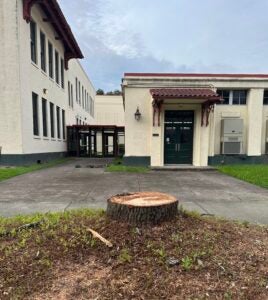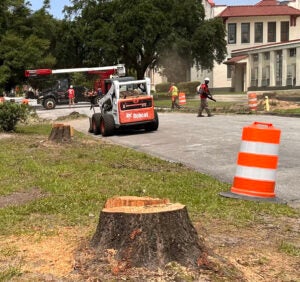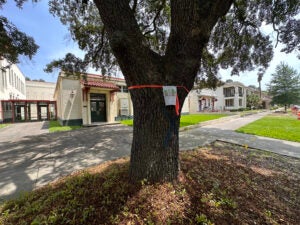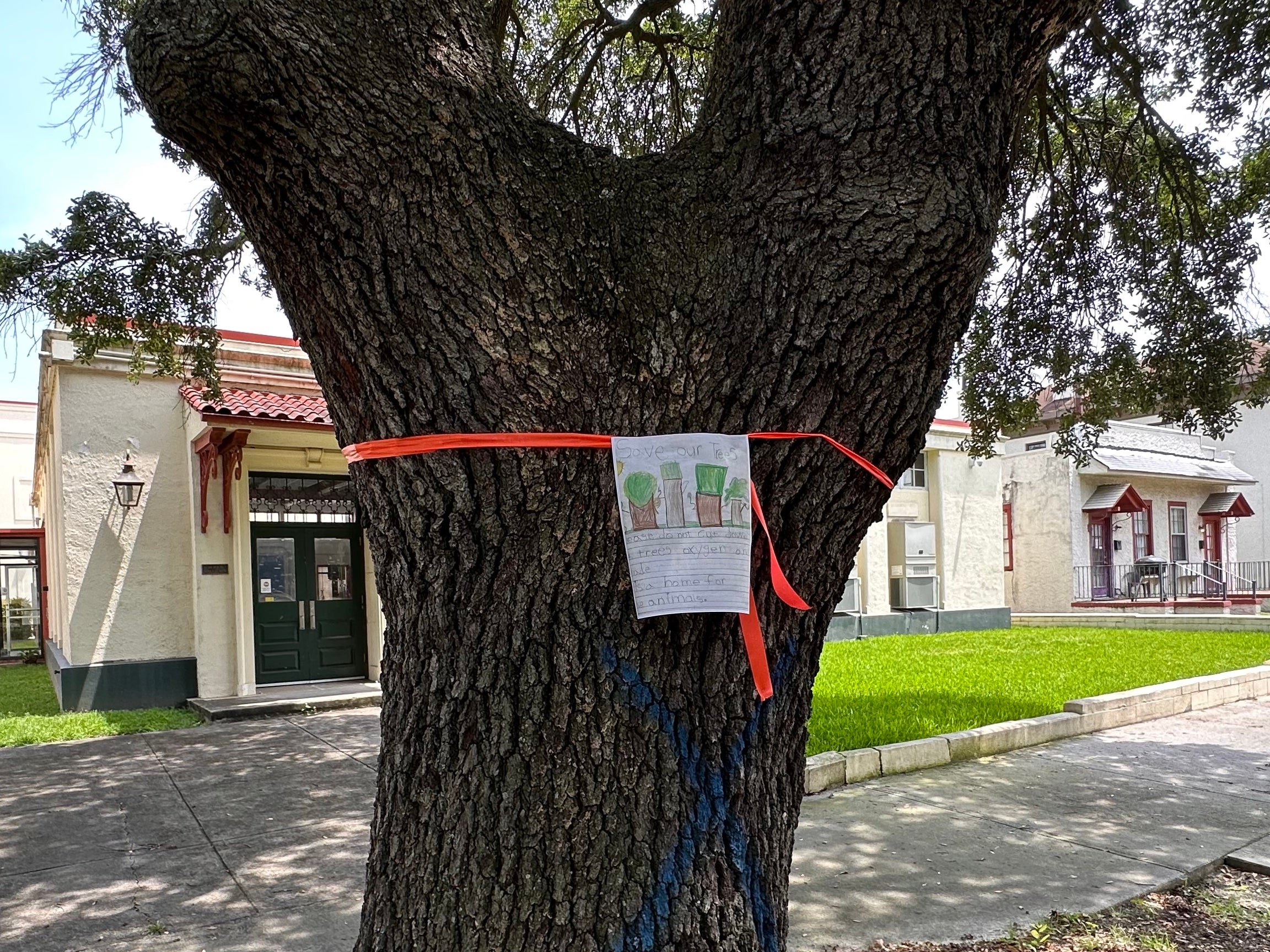A child’s hand-drawn sign, tied to a 100-year-old Greene Street oak, implored Augusta officials to “save our trees” Wednesday.
“Please do not cut down,” it said, because trees provide “oxygen and a home for the animals.”
It’s unclear if Big Dog Stump and Tree saw the sign, but by mid-afternoon the tree was just a large stump on the right-of-way by Heritage Academy.

As part of the Transportation Investment Act overhaul of Greene, contractors have removed the tree and around 20 others from the Greene Street median and rights-of-way this week, to the disgust of homeowners in the surrounding Olde Town Historic District.
“How can they?” said Joanne Greene, whose family has lived on Greene almost as long as the oldest trees. “This is not acceptable. This is a historic street and we have all these monuments here, and the churches, and it’s an established neighborhood.”
Named for Revolutionary War Gen. Nathanael Greene, Greene Street is a wide, tree-filled street with monuments to historic figures such as Greene and Emily Tubman as well as a few Confederates.
The TIA, commonly known as the T-SPLOST, for the 1% transportation special-purpose, local-option sales tax, promised a massive downtown streetscape overhaul when voters approved its first phase in 2012.
The city has provided a sketch of planned upgrades being made to Greene between Fifth Street and East Boundary under a $12 million sales tax project, but trees are shown only as small green marks.

Traffic Engineering sent an update Wednesday warning of road closures on Greene for tree removal, but most of the 20 trees were gone by the time it was sent.
City officials did not return messages Wednesday seeking comment on the number of trees being removed from Greene, how the streetscape project might incorporate existing trees and if and when the stumps will be removed.
Removing one corner tree on Greene left the adjacent homeowner with zero shade.
“Now his house is in full sunlight – it’s going to be hell to cool off,” Greene said. “What’s the point in cutting down all these trees? I’m just very sad about it.”
The removals follow the recent eradication of nearly every tree on the 13th Street right-of-way for a TSPLOST project there.
Thirteenth, Fifth, Sixth, Greene, Telfair and Broad streets are targeted for streetscape “upgrades” funded by the 1% sales tax, with expected completion dates in about three years.
Downtown activist Kevin de l’Aigle questioned the city’s wisdom in removing the trees.
“It’s just so heartbreaking to see these stumps,” he said. “This is what we’re showing children. This is our legacy in the city.”

While Augusta officials often claim removing trees is the only way to accomplish infrastructure projects, de l’Aigle said other cities prioritize their tree canopy.
“That this is the only way to do it, I just don’t buy that,” he said. “They’re just doing this based on what’s the easiest way to effect these utility upgrades, and it’s going hurt the quality of life downtown.”
Arborist Roy Simkins said the oldest trees on Greene date to around 1920 and while some are aging out, others are victims of an indifferent engineering department.
“For the last several years I’ve met with the city about taking out the hazardous trees, and they always claim they don’t have enough money,” he said. “They don’t have enough money to take down a bad tree, but they have enough money to take down a good tree.”
As chairman of the city tree commission, Simkins might be consulted on tree projects. But that’s rarely the case, he said.
“They know by the time they show them to you, it’s too late,” he said. “Engineers call all the shots. There are very, very few people on the commission that give a flip.”
A city website said the $12 million project will improve drainage, create parking and add bike lanes, sidewalks, lighting and “handicap facilities” in the section.











